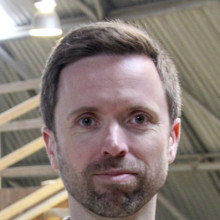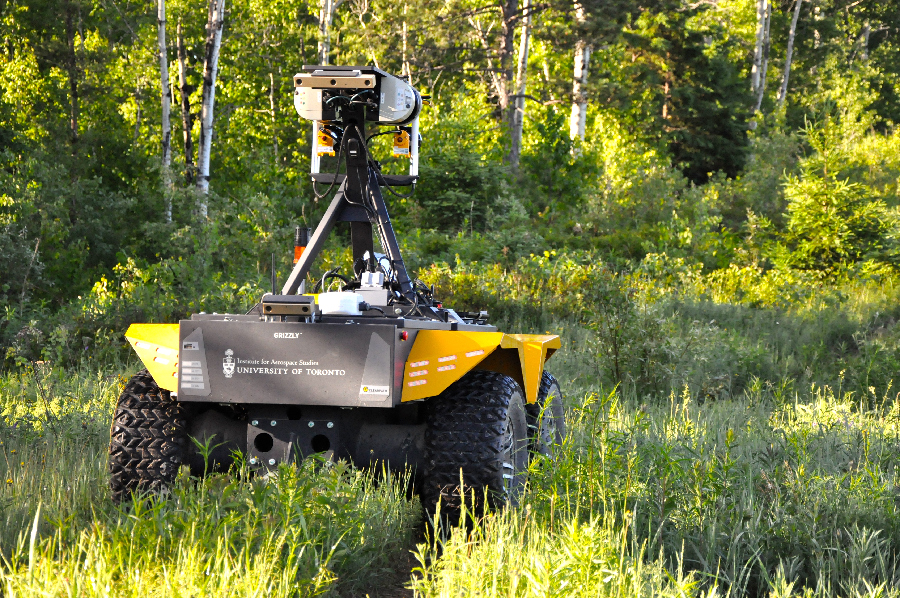
Robohub.org
Driving, flying, and climbing in a sand and gravel pit
In June, the University of Toronto (as part of the NSERC Canadian Field Robotics Network) carried out a set of field trials at an old sand and gravel pit in Sudbury, Ontario, Canada. This involved three main experiments:
- A new version of our Visual Teach and Repeat (VT&R) approach to vision-only route following,
- Aerial surveys of the site using fixed-wing unmanned aerial vehicles, and
- A tethered robot design for mapping steep surfaces such as cliffs.
In the VT&R experiments, we taught our robot a 5 km network of interconnected paths, then carried out 120 km of autonomous repeats on these paths using only stereo vision for feedback. The below video shows some sections being repeated. Our new technique, dubbed VT&R 2.0, is a significant advance over our earlier work in that (i) it uses a Multi-Experience Localization (MEL) technique to match live images to several previous experience of a path (making it more robust to appearance change), and (ii) is able to do place-dependent terrain assessment to safeguard the robot and people around it, even in rough terrain with vegetation.
The team also captured some great images of the various experiments. All images copyright Tim Barfoot or Francois Pomerleau.
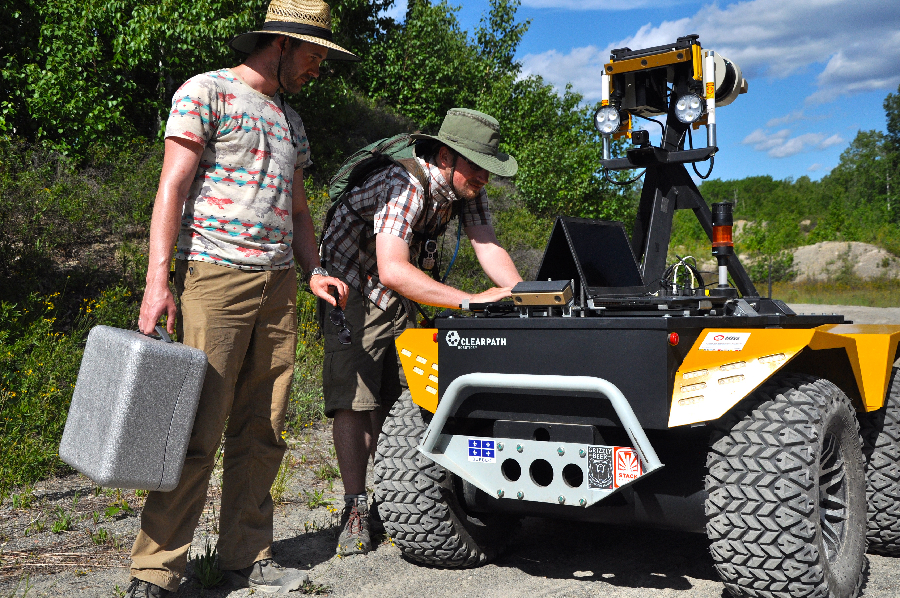
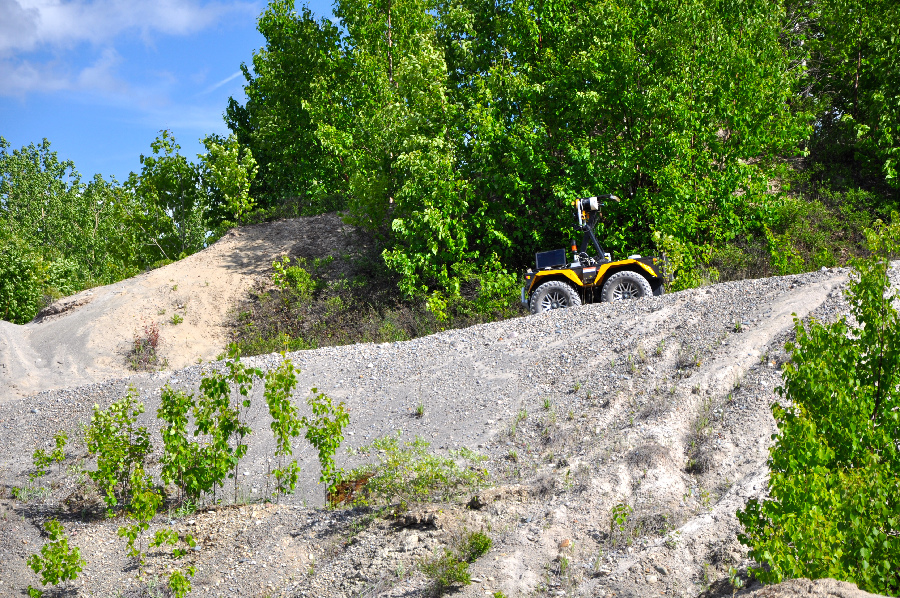
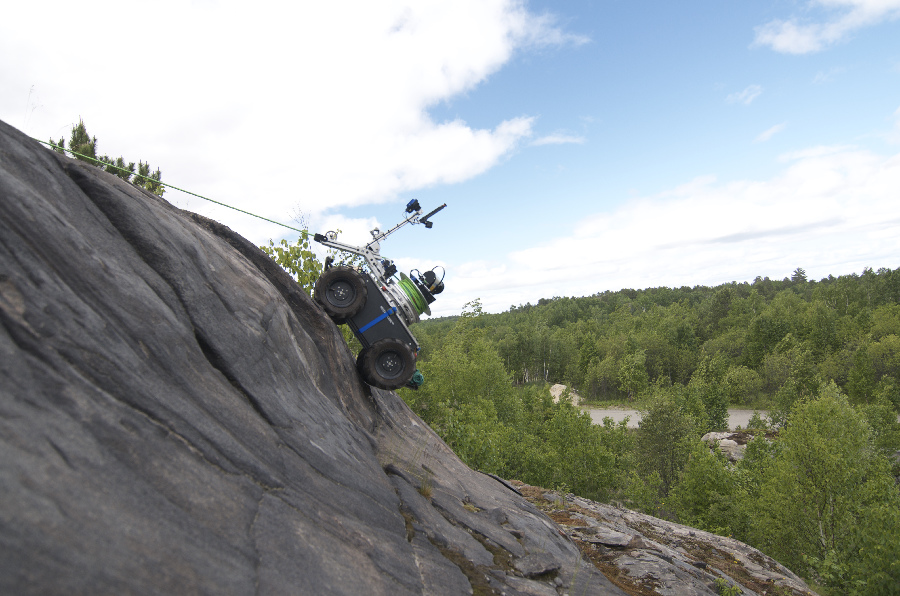
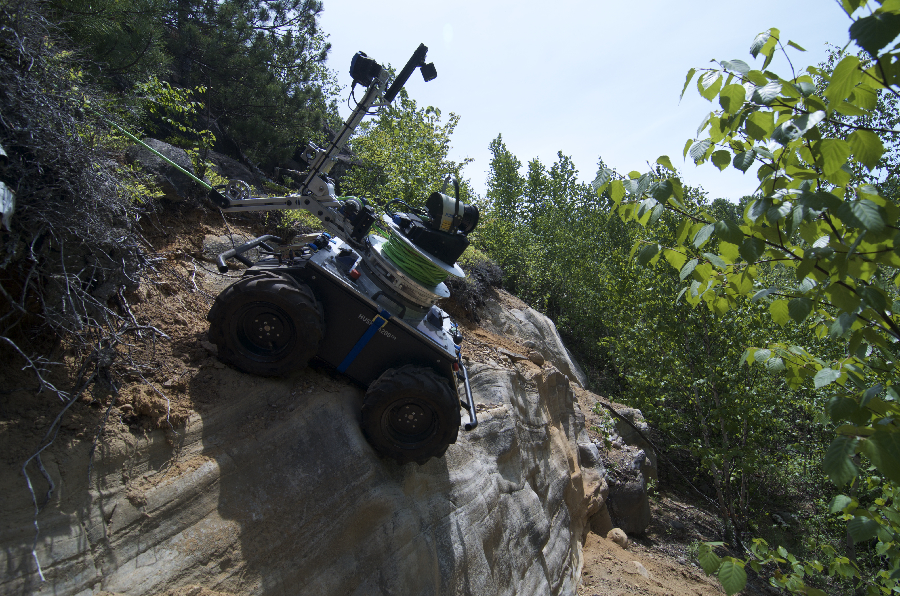
All photos can be viewed here.
This video is associated with the following papers:
Paton M, MacTavish K A, Warren M, and Barfoot T D. “Bridging the Appearance Gap: Multi-Experience Localization for Long-Term Visual Teach and Repeat”. In Proceedings of the IEEE/RSJ International Conference on Intelligent Robots and Systems (IROS), Daejeon, Korea, 9-14 October 2016
Berczi L P and Barfoot T D. “It’s Like Déjà Vu All Over Again: Learning Place-Dependent Terrain Assessment for Visual Teach and Repeat”. In Proceedings of the IEEE/RSJ International Conference on Intelligent Robots and Systems (IROS), Daejeon, Korea, 9-14 October 2016
tags: c-Research-Innovation, Multi-Experience Localization (MEL), Tim Barfoot, Visual Teach and Repeat
